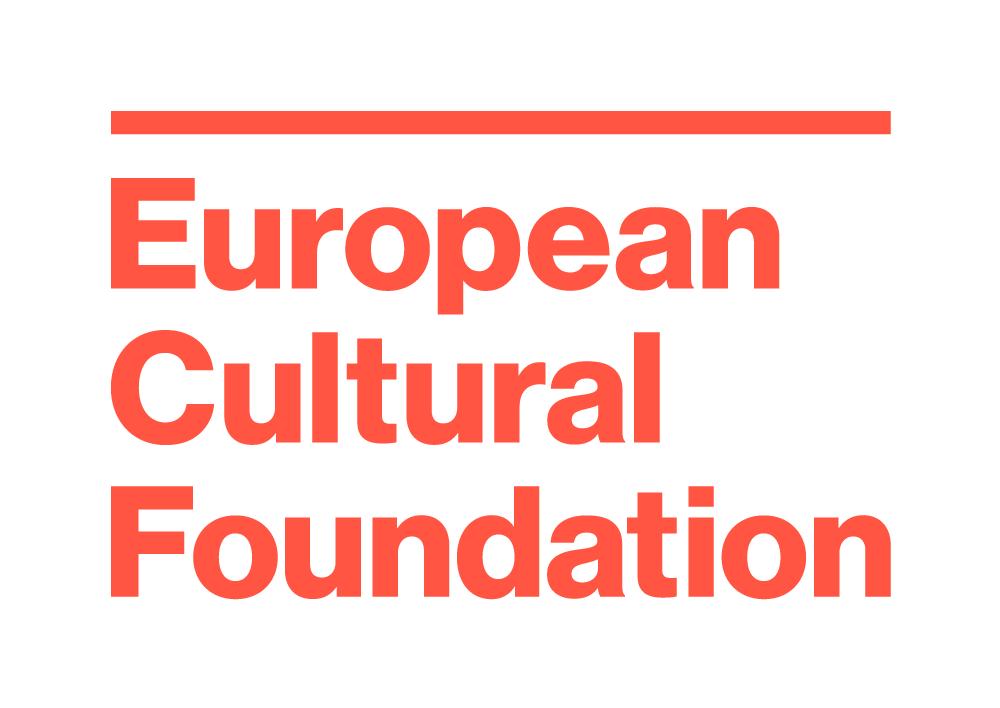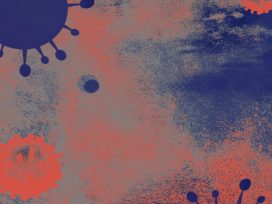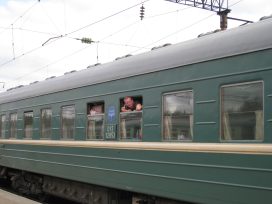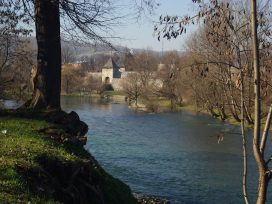The territory of dreams
The performing arts suffered a crisis of identity during initial pandemic lockdowns. Enclosure replaced gestures of intimacy. Nomadic artistic practice, no longer able to physically engage with linguistic, geographic and social borders, faced new ‘territory’. Itinerant artists, used to constant travel, started thinking more locally.
Compagnie Arts Nomades is not the type of travelling group to go kayaking or make videos for social media, so we found ourselves bereft (and a touch angry) when, in May 2020, we were told that we would have to reinvent ourselves by paddling down dried-up rivers in our local areas. We had already decided our route; our Michelin maps had been carefully annotated the previous autumn: Avignon, Anvers, Yverdon-les-Bains in Switzerland, and on from there. We were ready to cross a thousand borders – linguistic, geographic, social, to name but a few. Whatever happened, sinking into a deep viral lethargy was absolutely not part of the plan. But of course, it’s not us who choose the road, it’s the road that chooses us (and sometimes leaves us by the wayside).
So, like others, we rolled up our sleeves. We explored new artistic territories. Because we could no longer perform in public spaces, we tried the digital sphere. We made a podcast,1 documenting our attempt to create a show (one planned, and postponed, for an in-person audience) while our team spent lockdown variously in a community in Brittany, or their own apartments, or my home (which doubled as the company’s headquarters, office, storage area, writing room, rehearsal space and workshop; talking of territories, some places deserve a full-colour, softcover Maison Deroeck atlas all to themselves).
But the fact remains that you cannot just become a digital artist overnight. We were happy with our podcasts but with only 257 listeners, we quickly realized it was not a format that suited us. We needed to feel the air on our skin, to get sweaty unloading equipment from vehicles. We needed to hear other people’s voices, to discuss the state of the world with them, reach out our hands and lead them into our universe, inspired by theirs.
Then, thanks to a general political will, our screens were flooded with calls for artistic projects that might break the silent deadlock we were wallowing in. It was after responding to one of these calls that we ended up proposing an artistic project in the seven villages that make up Lessines, our small Belgian town.2
The Territory of the Rabbit
We started our attempt at a new post-COVID experience in the little park in Ollignies, a neighbourhood in Lessines: rehearsals were open to the public every day at 3.30pm against the beautiful backdrop of our caravans, which would be parked there for the entire week.
After having breakfast with the whole team (seven artists) around the big table set up in the middle of the park (with croissants donated by the local bakery), we started working (finally, rehearsals, after sixteen months of motionless silence!). But no sooner had we started than the company’s rabbit, disappeared.
The rabbit had been getting on my nerves for some time. My daughter had found him looking all cute in a pet shop and brought him home, assuring us that he would be a perfect companion for her eighteen-month-old son and on caravan tours. At twenty-five, it wasn’t as if she didn’t know the sort of things that might annoy me. And that rabbit, a Flemish Giant (more than a metre from ears to tail when stretched out), was undoubtedly one of them.
We all started running all over the place to try and find it, calling out the unlikely name my daughter had saddled it with: Ostara! A Norse fertility goddess for some, a pagan festival for others. I watched the company frantically searching with the day’s work schedule in my hands, telling myself that after two days it would be impossible to keep to the plan if the fertile pagan goddess kept disappearing. That rabbit really annoyed me!
We had been thinking about ideas of ‘territory’ and ‘proximity’, we wanted our art to bring us together with residents, we wanted to renew our dialogue with artists, and … I don’t know what to call it, ‘otherness’? Since March 2020 – thanks to the distinctions and divisions made between essential and non-essential activities, between face-to-face and behind-the-scenes jobs, between carers and companions, between authorized public transport (you will have noticed that practicality still rules: one can be transported by public bus, yes, but transported by poetry or collective joy, no!) and forbidden border crossings, between closed theatres and half-open football stadiums, between standing spectators and prone patients, between bankrupted restaurants and Amazon’s booming profits – I’ve felt as if just about everyone has been subject to a kind of othering.
To return to the rabbit, I would never have thought it could be part of the solution!
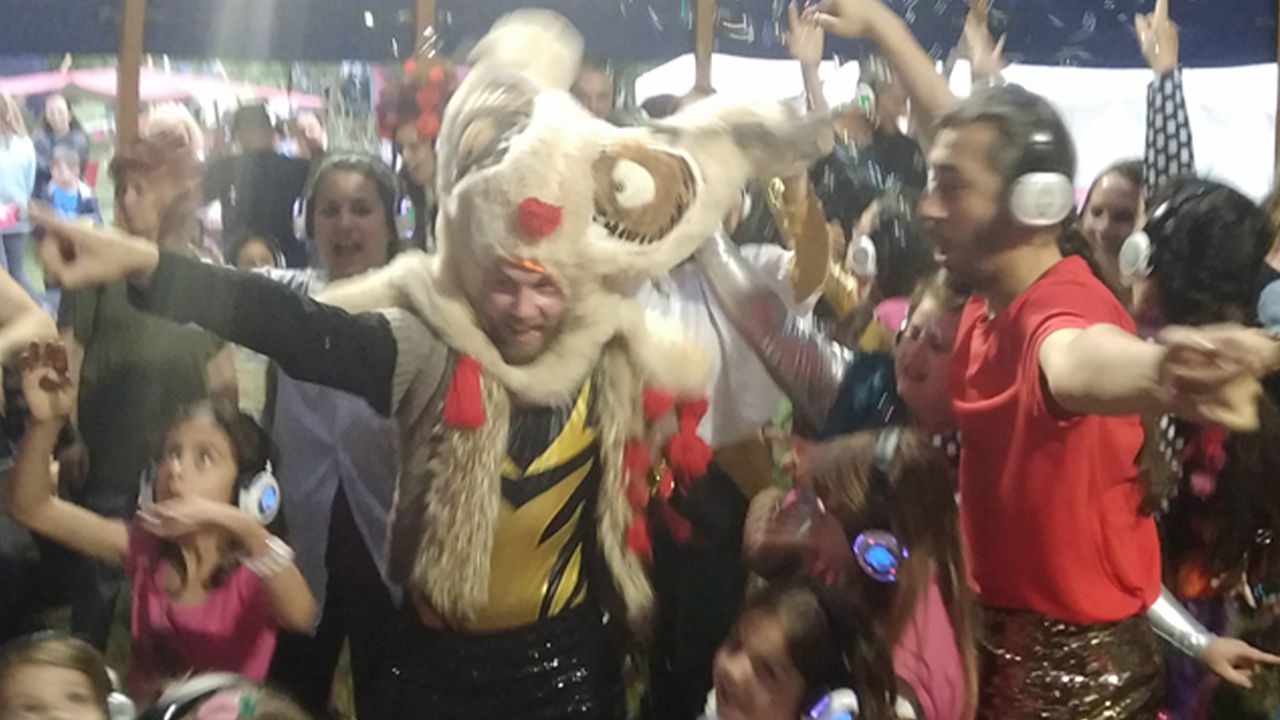
Image courtesy of Compagnie Arts Nomades
But when they saw us running in all directions, our neighbour and her daughter, who we had met the previous day with their dog, approached us. We explained about this, that, the rabbit, etc. And against all our expectations, they started looking for him with us.
Watching all this activity, I remembered an incident from much longer ago in our life as an itinerant theatre. At a meeting between artists inspired by nomadism we met Mona Metbach, a Romani painter who had turned up, appropriately, with her entire family – her husband, sisters, children, some cousins. We had taken over the Roseraie, an arts centre in Brussels, and our caravans were parked in a way that anyone unfamiliar with the constraints and habits of wanderers would have described as complete chaos.
Be that as it may, one of Mona’s little girls had brought her rabbit out of their caravan, sensibly leaving it in a bottomless cage. She was worried that the gadjos would be angry with her because her rabbit was eating their grass.3 So a rabbit had already been the essential spark for dialogue between people once before. Two rabbits had reduced each group’s territory to what it was: a patch of lawn that could be shared.
The territory of knowledge
With the rabbit incident, that late spring of 2021 started to resemble a time before the pandemic, when we felt like the world was our oyster. Especially as the next day, after having found the rabbit (to which I had grown secretly attached), the project we had only imagined on paper took on its full meaning.
A girl from the neighbouring primary school had warned her teacher: ‘Miss, tomorrow I’m leaving school before the end of the lesson because I want to go and see the actors rehearsing in the park! And it starts at three so I don’t want to miss the beginning.’ Suddenly, for that little girl, we had become the priority, even something essential. And the teacher, torn between memos and disinfectants, made a decision as radical as her pupil’s. The whole class would go to the rehearsal. And that day, almost twenty-five children, accompanied by their teachers and any parents who were able to come, sat down in the park to watch our creative work. No doubt they were, at the same time, expanding the territory of knowledge.
Micro-territories
In the middle of the park in that little village we felt, more than we ever have at ‘mega events’, as if we were leaving a trace, sharing space, time, knowledge and skills with local people. The following weekend we were filled with the same feeling again. We had been invited to perform at a mini festival: the Centre culturel du Brabant wallon had selected eight local villages, each of which would host a variety of artistic forms for a full day between June and October.4 Our show was to take place in a newly built area where architects had designed a square to serve as a focus for local life. After five years, the square remained unused. There was no social life visible from the surrounding balconies and the residents only ever crossed paths at the supermarket, which in any case simply involved taking the car out of the garage rather than meeting anyone else in the street.
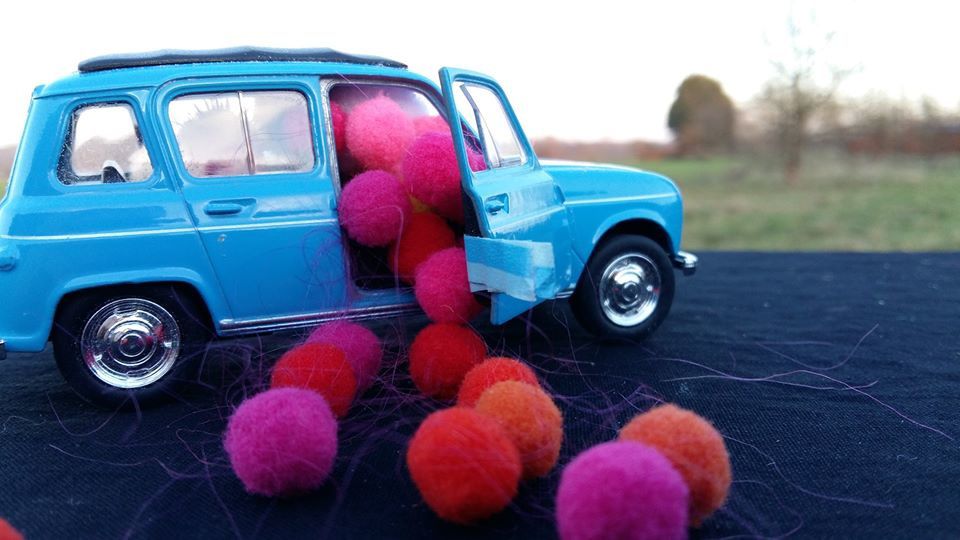
Image courtesy of Compagnie Arts Nomades
But that day, in the well-named ‘place du vent’ (windy square), there was a festive atmosphere unlike anything the residents had seen on their doorstep before. Of course, there were a few grouches who preferred to watch football than have a brass band playing under their window, but as the Belgian team had won that day, even they quickly forgot their annoyance and came down to celebrate the victory with everyone else. It seems to me that when it comes to festivals and events, it’s high time people started thinking more locally – smaller, and for fewer people, but more often. For itinerant artists like us (along with a few others in Belgium, France and Switzerland), this is not a new realization. It even has a name: ‘l’infusion de territoire’ (the ‘infusion’ or ‘embedding’ of territory), which is only possible ‘when citizens, artists, residents, local politicians, directors of cultural missions … forge relationships, think about the future and see culture as an integral part of daily life.’ Arts companies share their life with the residents of a territory over a period of a few days to several weeks: what kind of cultural development does this imply, what impact does this infusion of territory have on democracy and social wellbeing?5
The Last Frontier
In this ‘post-COVID’ time, France Everard, with whom I share so many things, including a concern for the future of the company, reminds me that ‘the ultimate frontier is skin’. That certain artists have been engaging for a very long time with concepts of proximity and intimacy through art that explores the barrier between self and world. If the pandemic brought all the performing arts to a sudden halt, what will become of this quest, which depends on the proximity of spectators, their hard-won trust? Now that the gestures necessary for intimacy (holding hands, sometimes hugging, dancing together) have been and replaced by gestures of enclosure?
The territory of dreams
In June 2021, a year after the rabbit incident, we finally travelled to Switzerland to celebrate the twentieth anniversary of arTpenteurs, another itinerant company. Thierry Crozat, the company’s artistic director, finished his account of his artistic odyssey with these words:
‘It is unbearable to see walls being put up along borders to enable the smooth passage of capital and commodities in the name of freedom. The world has turned on its head. Meanwhile the performing arts tirelessly knock down walls using dreams and poetry, build bridges to unite, exchange, listen, question. New barriers were erected, for protection this time. We were completely dejected. Never mind, let’s take down the walls, let the tent fly away, let’s get some fresh air, get up high and keep working to find ourselves under the stars.
In the future, we will keep inviting you to be at home in our home. Inside but outside … with no walls.’
And if I had to be excessively optimistic, I would observe that rabbits have certain faculties that enable us to believe we will not have to wait too long for that world beneath the stars to come into being.
MythWoman Podcasts, made between May and September 2020, available at https://www.artsnomades.be/2020/06/mythwoman-podcasts.html (last accessed on 6 April 2022).
‘Un Futur pour la Culture’: Call for project proposals from the Fédération Wallonie-Bruxelles, launched in collaboration with the Centre culturel René Magritte in Lessines.
In the vocabulary of the Romani, this term refers to a non-Romani person.
Les Scènes de Village, see https://www.ccbw.be/projet/scene-de-villages/ (last accessed on 6 April 2022).
Theme of a brainstorming workshop organized by the CITI (Centre International pour les Théâtres Itinérants) at the BIS in Nantes, 2018.
Published 11 May 2022
Original in French
Translated by
Isabelle Chaize
First published by Culture & Démocratie (French version); Eurozine (English version)
Contributed by Culture & Démocratie © Andreas Christou / Culture & Démocratie / Eurozine
PDF/PRINTPublished in
In collaboration with
In focal points
Newsletter
Subscribe to know what’s worth thinking about.
Related Articles
Mein Fall sei “speziell”, sagte man mir als einzige Erklärung am Flughafenschalter. Warum ich nicht in die Vereinigten Staaten reisen darf, weiß ich immer noch nicht.
Acclaimed novelist Ilija Trojanow was denied entry to the United States en route to the German Studies Association’s annual conference on 30 September. Could this possibly have something to do with Trojanow’s critical stance on NSA-led surveillance?
